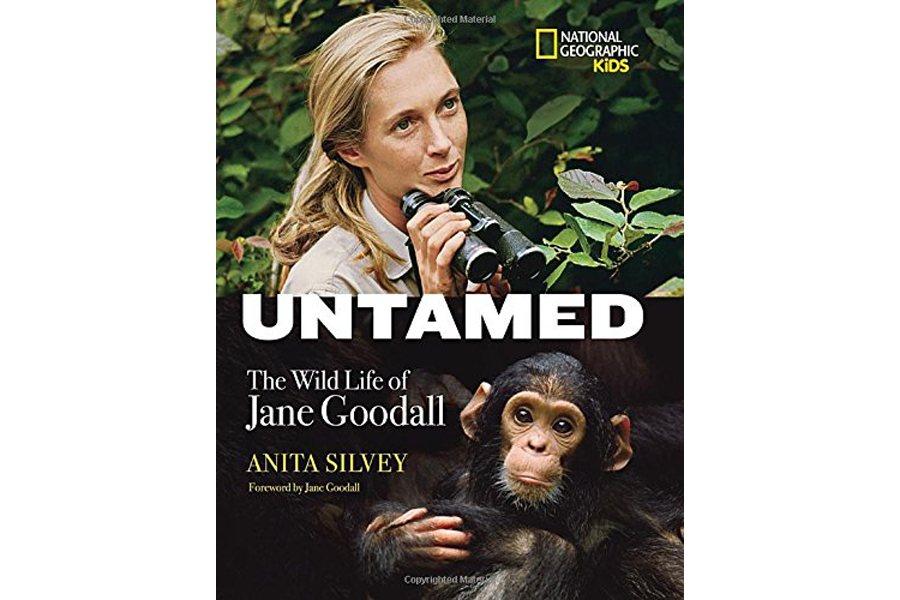Jane Goodall, who is now in her 80s, is the most recognized living scientist in the Western world, recent polls have shown. Her career studying chimpanzees in the wilds of Africa is legendary, a mission chronicled in a 1971 autobiography that has been the focus of many books and documentaries since then. While there may seem to be no need for yet another book about this scientific giant, Anita Silvey has managed to provide a concise and engaging look at Goodall’s life and work geared toward young readers, but also suitable for adults curious about her legacy and the waymarks of her study of the animals considered most like humans.
Here’s an excerpt from Untamed:
“Quite naturally, Jane also began to advocate for better treatment of chimps in zoos. Her research on the subject revealed that chimps were often held in cages that resembled prisons – with iron bars, concrete floors, and no socialization with others. So she launched project ChimpanZoo – an attempt to improve zoo conditions by environmental enrichment. The apes needed to be supplied with toys, bedding and nesting materials, fresh tree branches, and artificial termite mounds.
“Having learned what stimulated chimps in the wild, Jane suggested ideal conditions for those in captivity. With project ChimpanZoo, Jane not only wanted to help chimps held in captivity; she also wanted to engage people in thinking about and caring for chimps. So, university professors and students could partner with zoo employees to determine how the behavior of chimps in captivity differed from the actions of those in the wild. These researchers could see how chimpanzee behaviors differed depending on type of enclosure.”
(National Geographic, 96 pp.)







